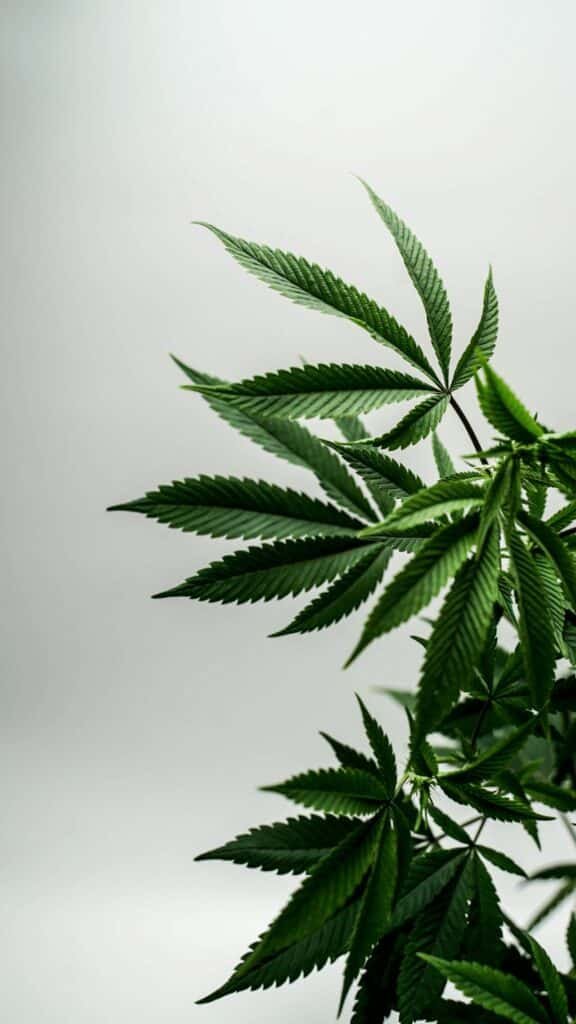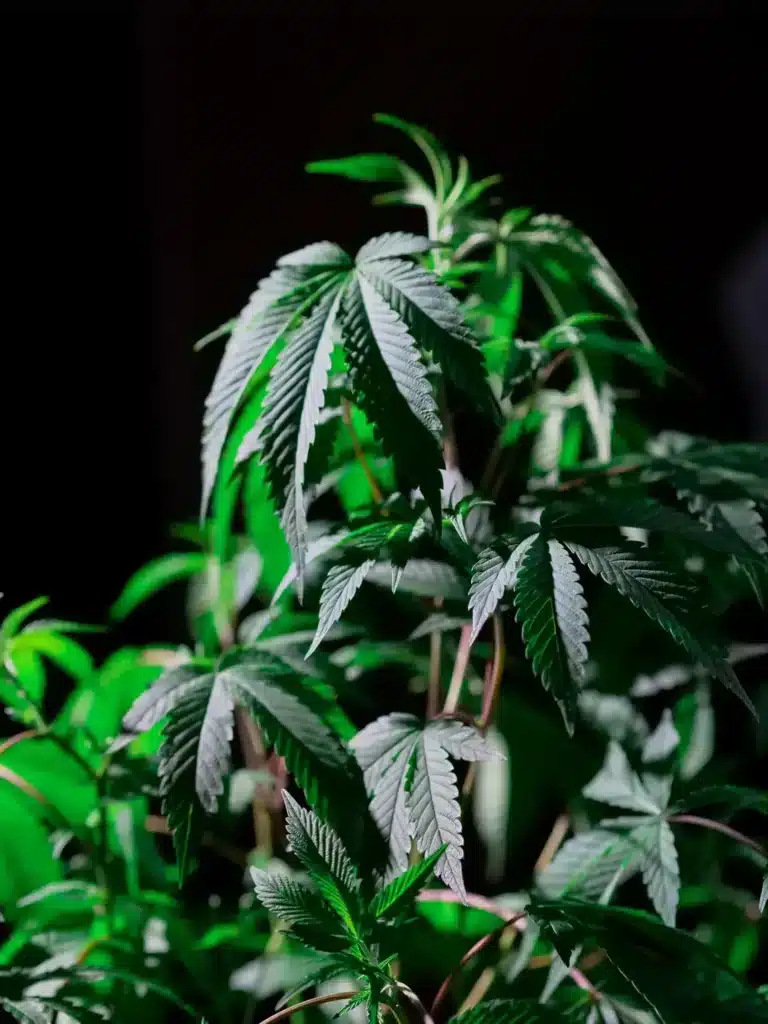Have you ever wondered, “Is THCa legal in Hawaii?” As the popularity of cannabis and its derivatives continues to rise, understanding the differences in state-by-state regulations becomes increasingly essential. In this blog post, we’ll explore the legality of THCa, a non-psychoactive cannabinoid found in hemp and marijuana plants, and its status in Hawaii. We’ll also discuss the importance of staying informed, using THCa responsibly, and how to navigate the ever-changing landscape of cannabis laws in the Aloha State.
Key Takeaways
THCa is a non-psychoactive cannabinoid with potential health benefits, but its legal status varies by state.
THCa derived from hemp products in Hawaii is legally permissible, while flower and Delta-8 THC are not.
It’s important to stay informed of any regulation changes when using or traveling with THCa in Hawaii for safety and legality.
Understanding THCa: The Non-Psychoactive Cannabinoid

THCa, or tetrahydrocannabinolic acid, is a non-psychoactive cannabinoid found in both hemp and marijuana plants, including the marijuana plant used for medical purposes. It is known for its potential health benefits and as a precursor to the psychoactive compound THC, which is responsible for the “high” experienced by marijuana users. Medical marijuana patients may use THCa for its potential therapeutic effects.
THCa can be extracted from hemp or marijuana plants using pure extraction or isomerization methods. Hemp-derived THCa products are generally considered legal under federal law as long as they contain less than 0.3% Delta 9 THC. Medical and recreational marijuana-derived THCa, on the other hand, has a more complex legal status that varies depending on the state. When buying THCa products, you should confirm compliance with federal guidelines and examine lab reports for impurities, potency, and hemp-derived compounds in the formula.
Remember that THC comes in various forms, such as Delta 8 THC and other THC isomers, which can have differing legal statuses based on the state and product source. Be sure to research the specific regulations in your area before purchasing or consuming any THCa products.
Federal Legality of THCa
Under the 2018 Farm Bill, THCa is federally legal as long as it is derived from the hemp plant and contains less than 0.3% total THC. This legislation significantly boosted the hemp industry and paved the way for producing and selling various hemp-derived products, including THCa.
However, state or federal law can differ, and some states may impose stricter rules on THCa and other hemp-derived cannabinoids.
Medical and recreational marijuana programs also play a role in the legality of THCa. In states with a legal medical marijuana program, THCa may be permitted for medical marijuana patients with a valid medical marijuana license. In states where recreational marijuana use is legal, THCa derived from marijuana plants may also be allowed for adults over the legal age for recreational and medicinal use, making THCa legal in these contexts.
Before buying or consuming THCa products, familiarize yourself with your state’s cannabis laws to ensure you’re following them.
Hawaii’s Stance on THCa

Hawaii’s THCa regulations are somewhat vague, requiring consumers to be informed and careful when exploring the local cannabis landscape. THCa is derived from hemp products and is considered to comply with federal guidelines, making it legally permissible in Hawaii. However, it’s crucial to be aware of any changes in Hawaii’s laws and regulations, as they may evolve.
THCa flower products, on the other hand, are not permitted in Hawaii. The legal status of Delta-8 THC in Hawaii is also unclear. Still, it’s important to keep in mind that the legality of various forms of THCa may depend on whether they are derived from medical or recreational marijuana.
Traveling with THCa in Hawaii
While traveling with THCa in Hawaii might be possible, adhering to state and federal guidelines is imperative to avoid legal complications. When transporting THCa within the state, be sure to carry documentation verifying the product’s legality and compliance with state and federal laws.
It’s crucial to be cautious when traveling with it, as the laws sound cannabis products can be complex. Always research the specific regulations in your destination and ensure you have the proper documentation to prove the legality of your THCa products.
Purchasing THCa Products in Hawaii

When buying THCa products in Hawaii, purchase from trustworthy retailers and check lab reports for compliance with hemp laws and purity. Since the legality of THCa may vary depending on its source, it’s essential to ensure that the products you’re purchasing are derived from legal hemp plants and compliant with state and federal regulations.
In addition to checking lab reports, be cautious when purchasing THCa flower products, as they are considered unlawful in Hawaii. Always prioritize safety and compliance with local laws when seeking THCa products in the Aloha State.
The Risk of Failing a Drug Test with THCa
Although THCa doesn’t have the psychoactive properties of THC, be aware that using THCa products might still result in a positive drug test. However, depending on the concentration, THCa is not Delta 9 THC and should not show up on a Delta 9 drug test.
If you’re concerned about failing a drug test due to THCa consumption, consider discussing the matter with a healthcare professional or employer to better understand the specific testing procedures and potential implications. It’s always better to be safe and well-informed when using cannabis-derived products.
Staying Informed on Hawaii’s Cannabis Laws

With the constant evolution of Hawaii’s cannabis laws, consumers should keep up on the most recent regulations and changes. By staying informed, you can ensure that your use of THCa is conducted by the law and in a safe manner.
Tips for Using THCa Responsibly
For responsible use of THCa, be mindful of the following:
The location and timing of your consumption
Your local laws and regulations
Always follow state and federal guidelines to ensure you use THCa products in compliance with the law.
In addition to legal compliance, consider discussing your use of THCa with a healthcare professional better to understand its potential benefits and any possible risks. By staying informed and using THCa products responsibly, you can maximize the benefits of this non-psychoactive cannabinoid while minimizing any potential legal issues.
You Can Enjoy THCA Responsibly in Hawaii by Following the LawsClosely
Understanding the legal status of THCa in Hawaii is crucial for navigating the complex cannabis laws in the Aloha State. By staying informed about local regulations, purchasing products from reputable retailers, and using THCa responsibly, you can enjoy the potential benefits of this non-psychoactive cannabinoid while ensuring compliance with state and federal laws. Remember to consult with licensed professionals before using THCa products and always prioritize safety and legal compliance.
Frequently Asked Questions
Is THCA legal in all states?
THCA flower with a delta-9 THC content of less than 0.3% is considered hemp and federally legal; however, some states may have laws that make it illegal.
What is THCA, and why is it legal?
THCA is the cannabinoid precursor to THC and is legal under the Farm Bill due to its absence from the list of Controlled Substances. When heated, THCA converts into the psychoactive compound THC.
How potent is THCA?
THCa is an inactive form of THC that converts to a more powerful form of THC and can provide potent results when heated. Suppliers offer THCa as crystals and concentrates for those looking for more potent effects.
Where can I find information about Hawaii’s cannabis laws?
Visit the Hawaii Department of Health and Marijuana Policy Project websites for the latest updates and information on cannabis laws in Hawaii.
Can using THCa cause me to fail a drug test?
THCa is unlikely to cause you to fail a drug test.






